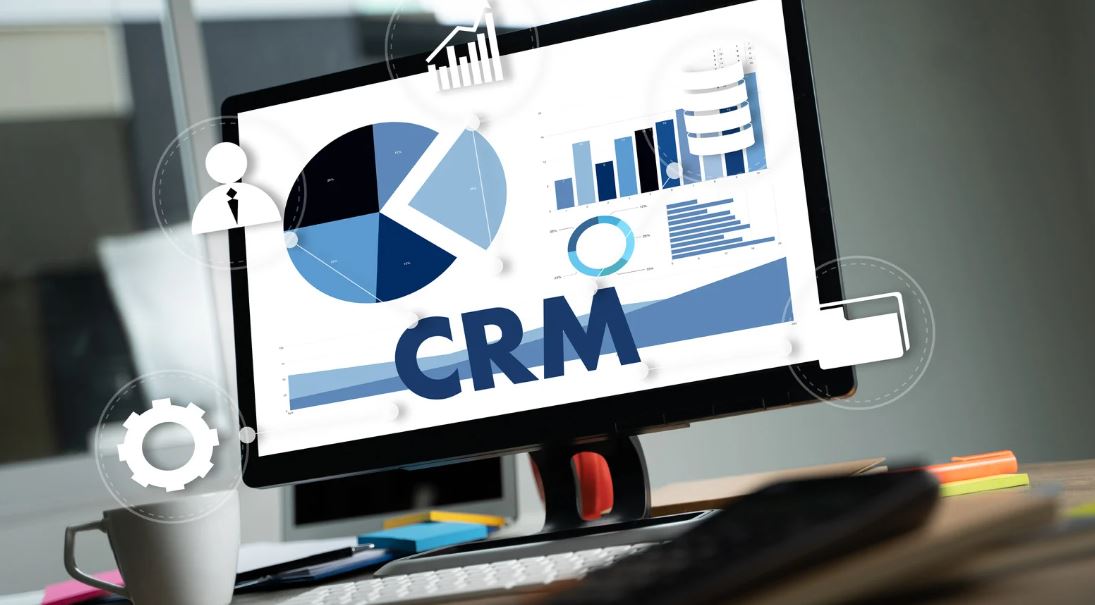In the time capsule of 2025, content management systems are more popular than ever, with adoption rates climbing by 12.6% year-on-year.
Nowadays, seeing a successful SME leading in their field without a CRM is like seeing a duck out of water or, more aptly in this context, a business leader without their morning brew. And underlying all of this is a handful of seemingly small yet mighty CRM features.
With such rapid growth, we’ve witnessed providers weather the AI storm and pivot on their offering. More advanced CRM platforms packed with ultra-customisable features are springing up left, right and centre, making choosing the right CRM system functionality vitally important.
With the right CRM system functions in place, the software can cut down lead times, refine broader marketing strategies and reclaim crucial hours spent on admin, benefits that each add up.
Read on to learn not only which ones to prioritise in your search, but also how they’re changing the game for both small and mid-market businesses around the globe.
Why the Right CRM Features are Worth Their Weight in Gold?

Attesting to their widespread appeal, the CRM software market is set to reach 98.84bn USD by the end of this year, but what is it about their functionality that is driving such a surge?
Well, part of the beauty of a CRM is that, depending on its configuration, it can serve multiple overlapping purposes that are integral to your business.
In our minds, though, there’s one overarching purpose that trumps them all: making your clients’ lives easier, and in such a way that they’ve no idea that there’s a piece of software driving things behind the scenes.
To achieve this, though, you need a few prerequisites in place, simple, user-friendly yet powerful features that keep your team efficient, responsive and confident, that ensure the best possible experience for users and clients alike.
Here’s a more comprehensive list of those benefits to get you thinking:
- Moves the admin burden from physical shoulders to digital ones.
- Provides a 360° customer view, with improved reporting and analytics, allowing for better decision-making.
- Convenient in that it connects up teams, tech stacks, data management and marketing processes, often into one centralised hub, no more jumping between tabs!
- Eliminates the need and associated costs of running a network infrastructure sophisticated enough to meet the demands of your business, with the added benefit of continual updates and development.
- Increases sales potential via streamlined end-to-end lead management, accurate forecasting and automation tools.
- Pinpoints opportunities for cross-selling and up-selling, augmenting ROI per customer.
- Improves collaboration and productivity within and between teams, departments and stakeholders.
- Allows for better customer care through faster response times, personalised interactions and helpdesk support, reducing customer churn.
- Brings added security and scalability that other software just can’t offer.
At a glance, that’s a lot, and you’re not wrong, we’ve only scratched the surface here. For the sake of keeping this guide moving, let’s proceed straight on to the core CRM features facilitating this plethora of benefits.
10 Not-To-Miss CRM Features for SMEs

1. Contact and Lead Management
Not just helpful, but crucial, the ability to track all customer interactions fluidly and efficiently can translate into improved ROI by providing a complete picture of the customer journey for each individual.
Ideally, all your insights should be searchable, automated, and all in one place, and a robust CRM will help you achieve all that and more.
2. Sales Pipeline & Opportunity Tracking
Keeping tabs on sales from start to finish, and every step in between, can rapidly eat up your time if you’re doing it manually.
With the right cocktail of CRM features, though, quotes, leads and opportunities are all at your fingertips, allowing for simple revenue management and more impactful decision-making.
3. Task & Activity Management
With activity management functions embedded into your CRM, it’s effortless to stay on top of competing deadlines, priorities and your team schedules.
This way, employers can take a step back from seemingly endless standup meetings, check in on progress from an intuitive menu and save both parties time in doing so.
4. Email Integration & Communication Tracking
Effective businesses employ effective communication strategies, and many CRMs offer core integrations that allow you to refine these processes further.
With email automation and communication tracking, you can compose, automate, send and measure email campaigns without leaving your centralised CRM hub. There’s no need for copious amounts of software when these features simplify everything.
5. Reporting & Analytics

The best CRM system functions include clear, actionable reporting that helps UK businesses understand customer behaviour, track pipeline performance and identify growth opportunities. Custom dashboards give your teams the data they need, without the unnecessary complexity of hopping between multiple software.
6. Workflow Automation
From content calendars to sales pipelines, streamlining your day-to-day operations helps you identify and avoid the time sinks you didn’t previously know were there.
Streamlined workflows free up your team to focus on high-impact activities, all whilst boosting efficiency and minimising the manual errors that once slipped into your processes.
7. Integration Capabilities & Mobile Access
Your CRM shouldn’t exist in a vacuum, siloed off from the rest of your activities. Look for a platform that integrates easily with your existing applications: accounting software, marketing tools, external cloud storage, and more. And with mobile access, your team stays connected and productive wherever they are.
8. Data Encryption & Access Controls
When dealing with sensitive customer and employee data, implementing the right tier of privacy measures is not just strongly advised; it’s non-negotiable.
Ensure your CRM utilises strong encryption and offers role-based access controls, so only the right people can view or edit sensitive information, and your practices remain compliant in line with your region’s data protection standards.
9. Omni-Channel Engagement
While the jargon sounds complicated, the concept is straightforward to grasp. Omni-channel engagement is simply the notion that your customers and prospects should be able to contact you from a variety of places, at any stage in the funnel, on their own terms.
On top of the traditional channels, email and phone, social media and live chat integrations allow you to stay responsive.
The idea is to centralise all of these touchpoints, so you’re always delivering consistent, joined-up communication across each of the channels you operate with.
10. Custom Fields & the Ability to Tailor
Every business has a unique fingerprint, whether in the earlier stages of small business growth or taking up a mid-market position; therefore, your CRM must be uniquely tailored to match.
Custom fields and flexible layouts do much of the heavy lifting in this regard, allowing you to capture the data that matters most and present it in a way that reflects the company’s priorities.
Narrowing Down Your Wishlist

Even with your CRM features wishlist in hand, selecting a provider is by no means easy when there are so many options. Therefore, it’s equally prudent to consider:
- Your preferred deployment options (cloud or on-premises).
- The level and type of customer support you can receive from the vendor.
- Whether an all-in-one solution or a more industry-specialised CRM is a priority.
- The amount of automation you’ll need day-to-day.
- Where your data is hosted and the vendor’s track record with privacy and GDPR.
Quickfire Tips for CRM Adoption
The actual adoption of your CRM, especially introducing it to the team, is potentially one of the largest hurdles business leaders face.
Therefore, it’s time to consider these tried-and-tested practices, ensuring the system remains a strategic investment:
- Make the initial setup simple by enrolling users in robust training programs and providing ongoing support.
- Speak your own language, help your team navigate your CRM modules by using your company terminology via custom fields.
- Leverage the full potential of your CRM system’s functionality with automations that speed up your processes.
- Ensure your old data is migrated successfully, so you’re not working around patchy information.
- Make the most of integrations to streamline all of your processes.
The Bottom Line on CRM System Features & Functionality
Focussing on the core CRM features that both align with your organisation’s mission and gel with the people using it is the most reliable path to success.
But given the unpredictability of market trends and, of course, changing requirements, it’s crucial you keep an open mind.
A surefire way to bake this kind of thinking into your processes is to choose a flexible CRM solution that can be tailored to your exacting needs and flex with future growth.
This means fully extensible features and deep customisation. Remember, your core CRM features are worth their weight in gold.




